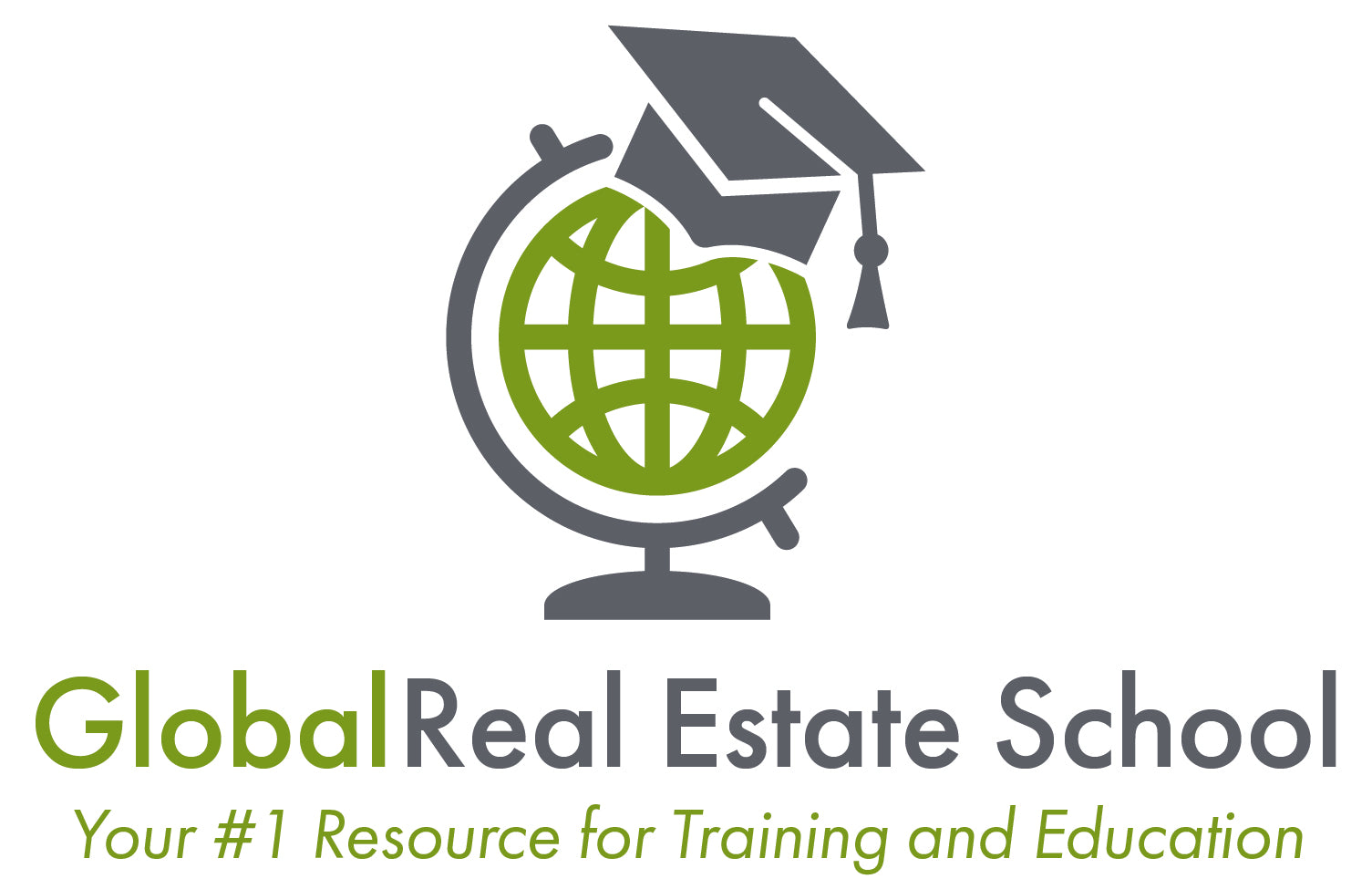The Role of a Real Estate School in Shaping Real Estate Experts
What Courses Are Offered at a Real Estate School? A Complete Overview for Aspiring Agents
Hopeful realty agents have a varied array certainly readily available to enhance their understanding and skills. These offerings range from foundational courses in actual estate principles to specialized training in areas like building management and commercial realty. Recognizing the numerous educational courses can be vital for success. What essential topics and strategies will these training courses cover, and just how might they form a representative's occupation?
Understanding the Fundamentals: Property Principles
The foundation of realty knowledge hinges on understanding its principles. These concepts encompass important principles that regulate the purchasing, selling, and management of residential or commercial properties. Secret subjects include home ownership, land use, and the various legal rights related to possession. Understanding the distinctions in between household, industrial, and industrial homes is crucial, as each classification has unique market characteristics.
Additionally, pupils find out about market analysis, which entails evaluating property values and patterns to make enlightened choices (Real Estate School). Realty principles likewise cover the relevance of contracts and the legal structure that sustains property deals. Knowledge with funding options, such as home loans and finances, is vital for guiding the economic facets of actual estate. On the whole, a strong grasp of these principles gears up hopeful representatives with the fundamental understanding required to be successful in the affordable property industry, leading the way for additional specialized training and licensing

Licensing Requirements and Examination Prep Work
Aspiring realty agents need to navigate particular licensing needs to exercise lawfully in their corresponding states. These demands typically include finishing a marked number of hours in pre-licensing education and learning, which covers vital topics such as realty regulation, values, and building monitoring. Candidates need to additionally pass a state exam that assesses their understanding and understanding of these topics.
Test prep work is vital for success. Numerous actual estate colleges provide examination preparation courses that give technique inquiries, study guides, and review sessions. These sources help prospects acquaint themselves with the exam format and material. Additionally, joining research study groups or using on the internet platforms can boost learning via collective review and discussion.
When the exam is passed, representatives should request their certificate with the state's genuine estate payment, often accompanied by background checks and costs. Meeting these licensing requirements assures that representatives are geared up to offer clients properly and fairly in the property market.
Specialized Courses: Home Monitoring
Recognizing the complexities of home monitoring is essential for real estate professionals looking for to improve their know-how in this customized field. Home management training courses offer representatives with useful insights right into the day-to-day operations of managing residential and business residential properties. These training courses normally cover vital topics such as renter relationships, lease agreements, and building upkeep.
Furthermore, aiming building managers learn more about financial monitoring, including budgeting and lease collection approaches, along with legal duties associated with renter civil liberties and property regulations.
Training courses might also discover advertising strategies for attracting occupants and devices for residential property administration software that enhance operations. By completing specialized building administration programs, genuine estate experts can better outfit themselves to handle the difficulties of managing residential or commercial properties successfully, inevitably leading to boosted client contentment and business development. This knowledge is important for those aiming to succeed in the competitive property market.
Industrial Genuine Estate: A Different Perspective
Business property operates under one-of-a-kind market characteristics that differentiate it from properties. Understanding financial investment approaches details to this field is vital for success, as is acknowledging the value of networking possibilities available to specialists. These aspects with each other form an all-inclusive technique to traversing the complexities of industrial realty.
One-of-a-kind Market Characteristics

Investment Methods Clarified
Many financial investment techniques exist within the domain of business genuine estate, each tailored to satisfy certain financial objectives and market conditions. One common strategy is value-add investing, where financiers acquire underperforming buildings, boost their worth with restorations, and ultimately boost rental revenue. Another technique is core investing, concentrating on supported, premium possessions in prime locations that supply constant capital. Additionally, opportunistic investing entails greater risk, targeting residential or commercial properties requiring significant redevelopment or in emerging markets. Realty investment company (REITs) offer a more easy method, allowing people to buy a varied portfolio of business homes. Crowdfunding systems have emerged, enabling small capitalists to take part in bigger commercial offers, democratizing accessibility to the commercial real estate market.
Networking Opportunities Available
In the domain of property investing, developing a robust specialist network can significantly enhance possibilities for success. Networking chances are plentiful at real estate institutions, where aspiring representatives can attach with market experts, instructors, and fellow trainees. Workshops, seminars, and guest lectures commonly feature experienced agents and brokers who share insights and experiences, offering vital calls. Lots of schools also assist in neighborhood meetups and networking events, urging pupils to involve with the broader realty area. In addition, on the internet systems and forums related to these programs allow for continuous communication and cooperation. By leveraging these chances, pupils can promote relationships that may cause mentorship, partnerships, and potential work positionings, inevitably assisting in their professional development within the affordable business realty market.

Property Financial Investment Methods
Realty financial investment techniques differ considerably, incorporating techniques such as rental residential property financial investments, flipping houses, and engaging with Real Estate Investment Company (REITs) Each method provides unique opportunities and threats that capitalists should carefully think about. Recognizing these choices is essential for any person looking to construct a successful actual estate portfolio.
Rental Residential Or Commercial Property Investments
Several capitalists find rental residential or commercial property investments to be a compelling technique for constructing wealth and creating passive revenue. This approach entails buying household or business residential properties to lease to lessees, ensuring a steady cash money circulation. Effective rental home investments require detailed market research study, examining property values, and understanding regional rental demand. Capitalists frequently gain from tax benefits, such as depreciation and home loan interest reductions. Additionally, residential or commercial property management abilities are necessary for preserving occupant relationships and making sure timely lease collection. Lasting admiration of home worths can even more boost a financier's portfolio. In general, rental home investments can offer a steady source of income and contribute to financial safety and security, making them an appealing option for lots of in the property market.
Flipping Houses Techniques
Turning residences has arised as a preferred technique for real estate capitalists looking for quick returns on their financial investments. This technique includes buying underestimated properties, making required restorations, and marketing them at a higher cost. Successful house flippers typically carry out detailed marketing research to recognize encouraging neighborhoods and properties with capacity for appreciation. They typically concentrate on aesthetic upgrades, such as kitchen area and shower room remodels, to improve allure without overspending - Real Estate School. Additionally, understanding funding choices and taking care of spending plans are essential for making the most of revenues. Time is essential in this method, as prolonged improvements can wear down revenue margins. Ultimately, turning homes calls for a blend of market understanding, remodelling abilities, and financial acumen to be effective in a competitive property landscape
REITs and Diversity
Although straight home investment can YOURURL.com produce high returns, Property Investment Company (REITs) use a compelling choice that allows investors to expand their profiles without the intricacies of handling physical properties. REITs are business that have, run, or financing income-producing actual estate throughout various fields, consisting this article of property, commercial, and commercial properties. By purchasing REITs, individuals can gain exposure to realty markets without the requirement for significant capital or straight management duties. This financial investment car also provides liquidity, as shares can be quickly dealt on stock market. In addition, REITs frequently pay dividends, supplying a regular earnings stream. In general, incorporating REITs into a profile can improve diversity and reduce threats associated with conventional property financial investments.
Continuing Education And Learning and Expert Development
As the actual estate market evolves, professionals have to take part in continuing education and specialist advancement to remain affordable and informed. This recurring understanding is vital for adjusting to changes in laws, innovation, and market fads. Realty institutions provide numerous courses developed to improve abilities and knowledge, consisting of advanced arrangement techniques, home management, and advertising and marketing strategies.
Numerous states call for certified agents to complete a set number of continuing education hours to keep their licenses. These programs commonly cover basic topics such as values, fair real estate laws, and danger monitoring.
In addition, industry workshops and workshops give networking possibilities, allowing representatives to connect with peers and industry leaders. By joining these instructional programs, actual estate professionals can guarantee they continue to be receptive and competent to client requirements, eventually causing profession growth and success in a vibrant industry.
Regularly Asked Questions
What Is the Typical Duration of Realty Courses?
The typical duration of real estate courses varies, typically ranging from a few weeks to several months. Aspects influencing this period consist of program web content, delivery method, and state needs, affecting ambitious representatives' educational timelines.
Are Online Courses Available genuine Estate Education?
Yes, numerous on-line courses are offered genuine estate education. These programs supply versatility and accessibility, allowing people to discover at their own pace while covering important topics required for acquiring realty licenses and expertise.
Just How Much Do Realty Courses Generally Cost?
Property courses typically range from $200 to $1,500, depending upon the institution and course length. Additional charges for materials, tests, and state licensing may also use, contributing to the total expense of education.
Can I Take Realty Courses Part-Time?
Yes, individuals can take actual estate training courses part-time. Many schools supply flexible organizing alternatives, permitting aspiring agents to balance their researches with various other commitments, making it accessible for those find out here now with active way of livings.
What Occupations Can I Go After After Completing Property Courses?

These offerings range from foundational courses in actual estate concepts to specialized training in locations like home management and industrial real estate. Genuine estate concepts additionally cover the importance of contracts and the legal framework that sustains genuine estate deals. While numerous actual estate experts focus on household markets, the characteristics of industrial real estate present unique obstacles and opportunities that need a various strategy. Real estate investment approaches vary substantially, including strategies such as rental property financial investments, turning houses, and engaging with Real Estate Investment Depends On (REITs) Direct property financial investment can generate high returns, Real Estate Financial Investment Trust Funds (REITs) use an engaging choice that allows financiers to diversify their portfolios without the intricacies of handling physical residential or commercial properties.